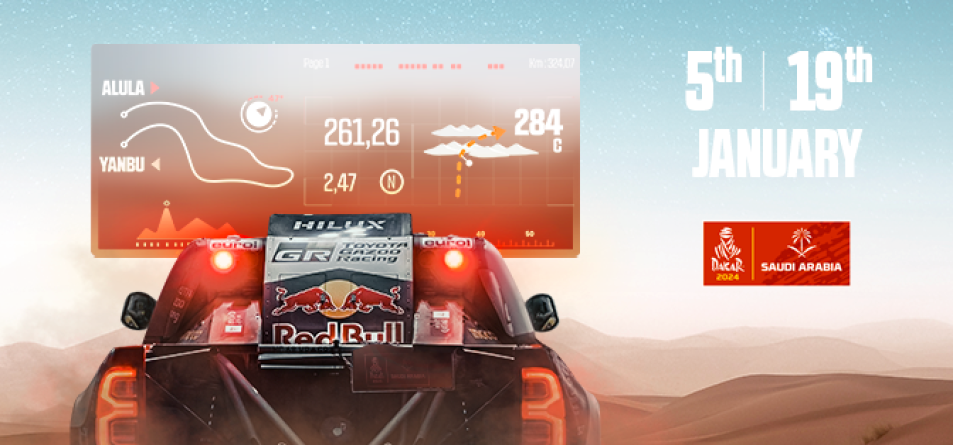Dakar Rally 2024 – changes, challenges, and chances of success in the most prestigous event in the world. The presentation of the 46th edition of The Dakar Rally was described as – a new step towards the future – capturing the elements of past, present, and future challenges for all competitors, constructors, and Team’s to embrace from 5 – 9 January, 2024.

The 5th edition of The Dakar Rally in Saudi Arabia, will start in the thousand year old city of AlUla followed by 12 Stages which run across the vast expanse of desert sand, entering the Empty Quarter for 2 nights before carving fresh routes across the dunes to finish at Yanbu, on the coast of the Red Sea.
Clocking up total of 5,000kms including Special Stages, participants will navigate 60% unknown terrain, along with confronting new aspects of race format which includes end of racing at 4.00pm within titled 48H CHRONO Stage. Taking place in the Empty Quarter, under similar restrictions as previously known Marathon Stage, competitors will end Stage at nearest bivouac, resuming the following morning at 7.00am.
What does this change mean for rider’s, driver’s, and Team’s co- competitors who already have no assistance available for 2 nights in the Empty Quarter. #1: there will no longer be known fact that if problems occur on route, time penalties will occur, rather the opposite, each competitor’s position will be confirmed on where they finish race day at 4.00pm.

Time bonuses will be awarded to both FIM and FIA categories for competitors leading Stages, along with separated routes for Cars and Trucks, from Bikes, Lightweight Prototype, SSV and Quads at nominated Stages. Yes, completing each Stage within group of competitors following similar lines remains viable race strategy, but so to does taking a chance to lead out a Stage, knowing bonus points would be awarded at the finish.
The challenges of making most of changes in 2024 Dakar Rally format are two-fold. 1: Constructors will have opportunity to test their vehicles in the most extreme race conditions, knowing that the crew only will be able to fix any mechanical problems if they occur over 48 hours. 2: Rider’s, driver’s, and co-driver’s will rely solely on their abilities to race with sheer expertise, all the while lessening chances of mistakes and likely mechanical problems ie: punctures, roll-over’s, and break-downs, to complete unassisted Stages at pointy end of table board.

Significantly, 2024 Dakar Rally mandate: a new step for the future provides incentive for testing, running, and analysis of vehicles on sustainable fuel, within the context of Rally Stages. Designated Dakar Future Mission 1000, energy sources which consume the least amount of fuel using hydrogen, 100% electric or hybrid engines will test performance of vehicles over separate 100km routes each day. A panel of experts will examine levels of performance in terms of technical reliability, energy consumption, and carbon footprint consolidating the development of sustainable fuels to power racing Dakar in years to come.
Melding past, present, and future within Dakar Rally 2024, the classic car category will be limited to 100 entries paying homage to the vehicles which embraced the challenges of the event through-out the 1980’s and 1990’s. One could ask, for what reason would the older vehicles need to blend with the present day and the new? Look no further than the prestigious status The Dakar Rally affords to global audience, some 46 years later, from it’s inception by founder Thierry Sabine in 1979.
2024 Dakar Rally 5 – 19 January. Header photo: presentation of 2024 Dakar Rally Image: ASO
Words: Sharon Cox.





Comments are closed.